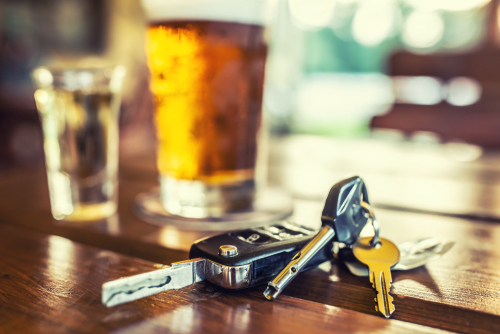In what is considered a precedent-setting decision, a Pennsylvania court determined in September of this year that stripping away second amendment rights – the right to keep and bear arms – after a second DUI was considered unconstitutional due to the nonviolent nature of the crime.
In the case of Holloway v. Sessions, Chief Judge Christopher Conner of the Middle District of Pennsylvania ruled in a 21-page memorandum that it was unconstitutional to permanently erase the right to purchase firearms for Raymond Holloway, Jr., who was convicted of a second DUI in 2005.
Holloway attempted to purchase a firearm in 2015 and was denied due to his previous DUI conviction. In Pennsylvania, those who have been convicted of misdemeanors that can include sentences of more than two years in jail are prohibited under federal law from possessing a firearm.
The recent ruling suggests that those convicted of some other misdemeanor crimes may also have their second amendment rights restored under the latest precedent.
The court ruling pointed out that a DUI is a non-violent offense, and found that the government had not provided sufficient evidence that Holloway was dependent on alcohol, had a history of mental illness, or that he would be a danger to others.
Holloway, who served a work-release sentence of 90 days and paid a fine of $1,500, has not had any other arrests or convictions since the 2005 DUI.
Holloway sued based on the ruling following Binderup v. Sessions, a case in which the court found that minor, non-violent felonies – which currently result in a lifetime ban for owning a firearm – were not cause to permanently curtail second amendment rights. Although the case was appealed to the Supreme Court, the high court refused to hear it.
In the Holloway case, the government relied heavily on an expert report suggesting that a second DUI conviction boosts the risk factors for alcohol abuse, and that those who do abuse alcohol were more likely to intentionally use firearms to harm themselves or others. They also referenced a report suggesting that alcohol dependence was linked to a host of other violent crimes including domestic violence.
Conner found that there was no evidence to support the claim that Holloway was dependent on alcohol, or that the there was a link between public safety and the “continued disarmament” of Holloway.
Call a Florida criminal defense attorney
Are you concerned that your misdemeanor crime has put your ability to purchase a gun in jeopardy? Contact an experienced criminal defense attorney like Malcolm Anthony to help you learn more about protecting your second amendment rights. Call 904-285-4529 (4LAW).


